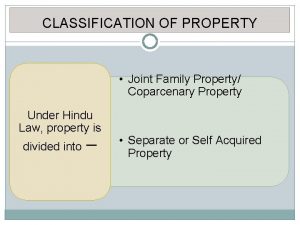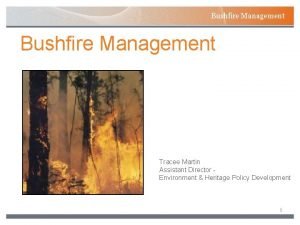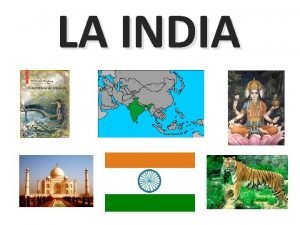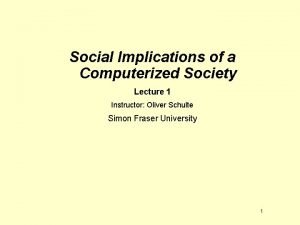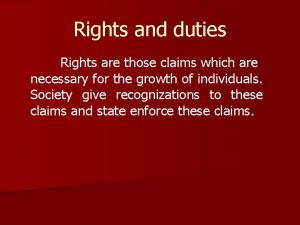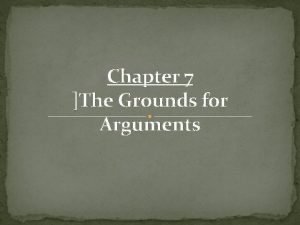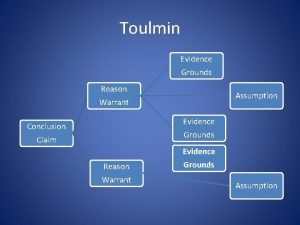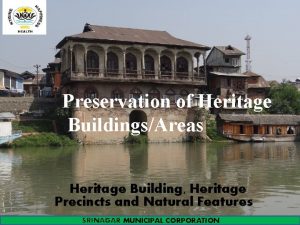The environment culture heritage and childrens rights Grounds







- Slides: 7

The environment, culture, heritage and children’s rights

Grounds for the intervention • Environmental concerns – s 24 ‘future generations’ • Cultural and heritage concerns • Relates mostly to children’s rights in international and regional instruments to cultural identity, protection and preservation of African culture and respect for the natural environment • Mostly relates to children’s education rights but also to inter-generational justice and intangible heritage and culture rights

UN Convention on the Rights of the Child • 24(2)(c): The State’s responsibility to ensure children’s health protection, especially with regard to clean drinking water, taking into consideration the dangers and risks of environmental pollution • 29(c): The State’s commitment to the fact that children’s education shall be directed to the development of respect for his or her own cultural identity and for civilizations different from his or her own. • 29(e): The State’s commitment to the fact that children’s education shall be directed to the development of respect for the natural environment • 30: The State’s responsibility to ensure that indigenous children shall not be denied the right to enjoy their own culture • 31: The State’s responsibility to ensure that children have a right to participate freely in cultural life

African Charter on the Rights and Welfare of the Child • Preamble: ‘Taking into consideration the virtues of the State Parties’ cultural heritage, historical background and the values of the African civilization which should inspire and characterize their reflection on the concept of the rights and welfare of the child. ’[ • 11(2)(c): The State’s responsibility to ensure that the education of a child should be directed to the preservation and strengthening of African culture. • 11(2)(g): The State’s duty to ensure the development of children’s respect for the environment and natural resources

Minors Oposa v Secretary of the Department of Environment and Natural Resources 33 ILM 173 • A group of children acting on their own behalf and children yet unborn • Against deforestation of rainforests in the Phillipines • First objection was that the children don’t have standing • There is no problem with their standing to ask for the enforcement of their own rights • South Africa has very broad standing provisions so this would similarly not be a problem • They also claim for ‘succeeding generations’

• Intergenerational responsibility – intergenerational justice • Rhythm and harmony of nature which indispensably include the judicious disposition, utilization, management, renewal and conservation of the country’s forest, mineral, land, waters, fisheries, wildlife, off-shore areas and other natural resources • The children’s case to enforce their right to a sound environment is at the same time the performance of their own obligation to ensure the protection of that right to the generation to come • We would argue this also applies to cultural and heritage sites

• Cultural and heritage rights • Linked to education in South Africa about Mapungubwe • Forms part of the grade 6 curriculum in Life Sciences • Large groups of students visit the Museum at the University of Pretoria • Developing a museum at the National Park
